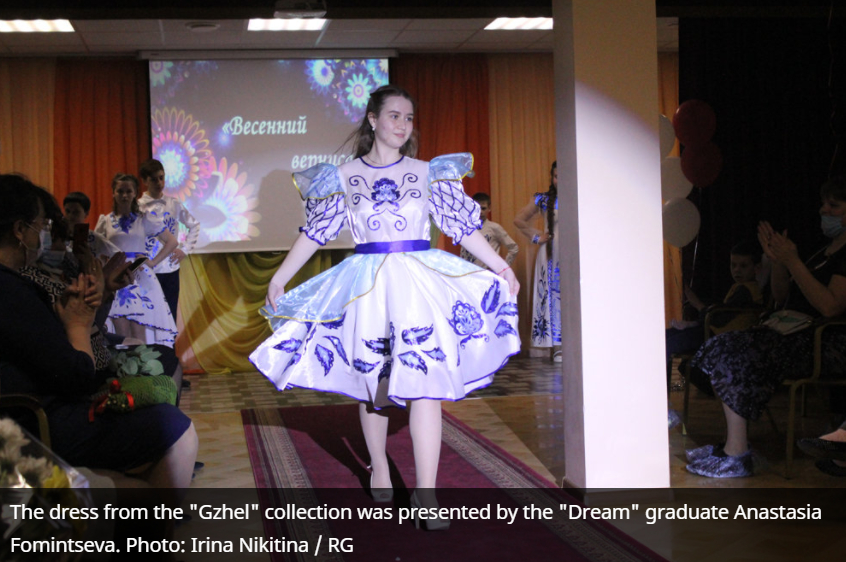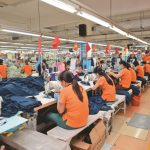
The fashion industry market in Russia last year shrank by a quarter, to 1.71 trillion rubles. Against this background, the news of the opening of new enterprises gives hope for a gradual recovery of the industry, experts say. What has the business done to restore production, and what are the results of these efforts?
The fashion industry is usually understood as a small part of retail and a few famous designers. And the mass market, garment production, e-commerce platforms are considered separately. But in reality it is a single business system, of which the fashion industry is an element, and its success or failure, as an indicator, testifies to the position of the entire industry as a whole. A study by Fashion Consulting Group showed that the domestic fashion market, which has lost its position due to the pandemic, has been undergoing difficulties for several years.
In 2019, it fell by three percent. There are a lot of reasons: a drop in consumer demand, an increased price for fabrics and accessories, the rapid obsolescence of collections, and so on. In 2020, the difficulties caused by self-isolation were added to this. But this year the situation has changed. According to Rosstat, in the first two months alone, enterprises produced textile products by 14.6 percent more than in the same period last year. In particular, clothes were produced by five percent more.
In the south, businesses reacted quickly to the changing situation. The Rostov sewing enterprise, which has decided to open a new factory, expects to reduce the number of orders that have to be fulfilled on the side and improve the quality of its products. The production of knitted products is going to be doubled. Currently, the company’s own workshops are located inconveniently, in basements and other unsuitable premises. Investments in the new factory, including equipment costs, amounted to about 400 million rubles. It is planned to recoup the investment in seven years.
Another large Don enterprise, which closed the shops after the announcement of the self-isolation regime, has already begun to increase production. Sales are increased through cooperation with the marketplace. However, the full transition to online is not planned. Our own market research has shown that buyers of clothing even for youth brands are not yet ready for this.
“Indeed, the enterprises of the garment industry and the light industry in general began to actively seek ways to make money in the current conditions,” says Natalya Nesterenko, director of the marketing department of the Rostov garment factory . – Someone refuses to sew on the side and improves the quality of products, someone sets the goal of 50 percent of sales through the Internet. We concluded that the cost of the collections is too high, in any case, it does not correspond to consumer demand. We found a way out by changing suppliers of fabrics. From the Italian had to be abandoned. Previously, our special representative traveled to this country and purchased the necessary textiles from stock warehouses in small batches, now this is impossible. We have increased supplies from Belarus, we have been cooperating with them for a long time.
They are attracted by the guarantees of a fair deal and the absence of complaints about quality. We have established a connection with China, we are bringing most of the fabric and accessories we need from there. One of our regular wholesale customers, very picky about style and quality, once said about this: “The bright won the great.” Well, there will be an opportunity, let’s return to Italian fabrics, but so far it has not been possible. But if before the pandemic our sewing capacities were used by 60 percent, and last year by 20 percent, now they are almost fully loaded.
In addition, the company changed its product range. Instead of dresses for going out, they began to sew pajamas, home and sportswear.
It should be noted that large companies have survived the shutdown of production and the drop in consumer demand more easily than small ones. Even those representatives of small businesses who managed to find their bearings in time and began to produce personal protective equipment (PPE): masks, gloves, overalls, are now experiencing difficulties with orders.
Metropolitan enterprises and importers realized even faster, and now it is they who mainly supply medical institutions with PPE, – complained the head of the sales department of one of the Rostov sewing companies Ruslan Khazikov. – As a result, small business products turned out to be almost unclaimed. We purchased Chinese machines to sew disposable masks, and at first we made them in two shifts, but now we cannot load the equipment at full capacity. But they unexpectedly received orders for sewing clothes from the domestic fashion retail, which made it possible to compensate for losses and pay off loans. The fact is that no one brings Italian collections now, and all models that are in demand are trying to sew in their factories. New collections, as a rule, do not sew, they finish what is left. I talked with colleagues from different countries, it’s the same there. In my opinion, the pandemic has changed logistics. Now sewing will be located as close as possible to the place of sale.
Some enterprises that entered into contracts for work with migrants faced a staffing problem. Many employees ran out of patents, and they did not have time to issue new ones, others went on vacation and could not return. Now labor migrants from the near abroad are already returning, but so far this process is not going as fast as we would like. And someone just stayed at home, in their place you have to hire new personnel and hastily train them.
The crisis had a negative impact on the dynamics of consumption, destroyed production ties, but at the same time it made it possible to increase the share of domestic product. Now successful enterprises are trying to gain a foothold in foreign markets, but for the light industry, another task is of primary importance.
According to the president of the Russian Union of Entrepreneurs of Textile and Light Industry Andrei Razbrodin , there are export projects in the industry, but they are piecemeal. Investments should be made in import substitution, not in export. Moreover, the situation is favorable for this: due to the pandemic, imported goods have become much less, and those that do end up on our market are expensive.
Recently, the government introduced quotas for purchases by state-owned companies of 251 types of domestic goods in 2021 – 2023 – at least 50 – 90 percent of all purchases. This decree will benefit the light industry, quotas will provide guaranteed sales: state-owned companies buy a lot of products from the light and textile industries, both finished products and raw materials. Therefore, now is the time to try to replace imported products with domestic ones. When the share of domestic goods on the Russian market reaches at least 40 percent, it will be possible to think about going abroad.
But so far we have to admit that foreign competitors are acting faster. The Federal Customs Service reports that in April, imports of knitted clothing increased 2.7 times, and that of footwear, it doubled.
By the way
In the Rostov region, according to Rostovstat, more than 400 economic entities indicate the production of light industry goods as the main activity. They make men’s, women’s and children’s clothing, products from terry and synthetic fabrics, overalls, knitwear and hosiery and footwear. More than 93 percent of the shipment of light industry products falls on the production of clothing and textiles. According to the Union of Entrepreneurs of the Textile and Light Industry, about 20 thousand enterprises of all types operate in this industry in the country , mainly small businesses and individual entrepreneurs. The enterprises employ about 350 thousand people. The salary is low, on average 23-25 thousand rubles.
Source: Russian Newspaper Via The Russian Union of Entrepreneurs of Textile and Light Industry (SOYUZLEGPROM)





